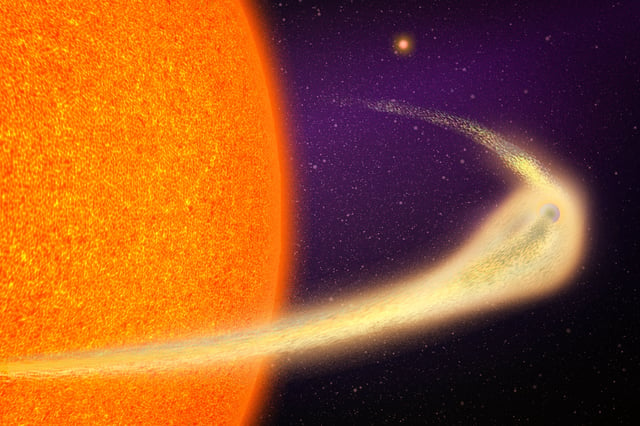Overview
- BD+05 4868 Ab, a rocky exoplanet in the Pegasus constellation, was identified using NASA's TESS data due to its unusual transit patterns.
- The planet, about the mass of Mercury, orbits its star every 30.5 hours at a distance 20 times closer than Mercury is to the Sun, causing its surface to reach molten temperatures of around 3,000°F.
- It is shedding a mineral tail stretching up to 9 million kilometers long, releasing material at a rate comparable to one Mount Everest per orbit.
- Researchers predict BD+05 4868 Ab will completely evaporate within 1–2 million years due to its extreme proximity to its star and low gravitational hold.
- Upcoming James Webb Space Telescope observations, scheduled for summer 2025, aim to analyze the mineral composition of the planet's tail, offering insights into rocky planet interiors beyond our solar system.
